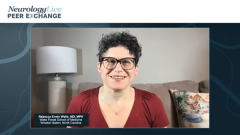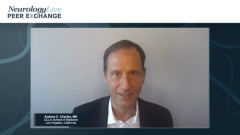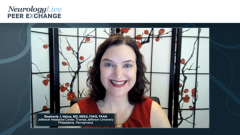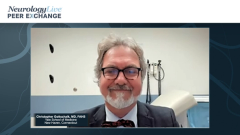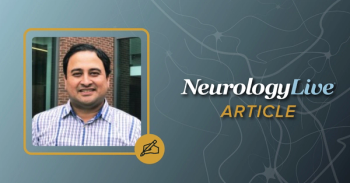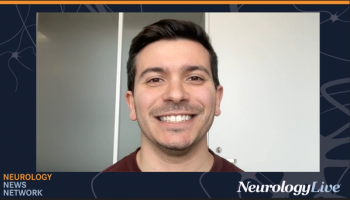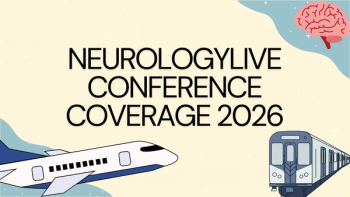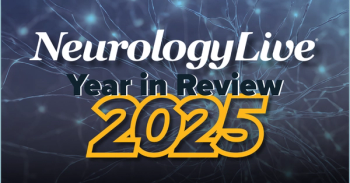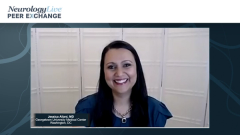
Non-Drug Therapies for Migraine Prevention: Lifestyle Changes
Rebecca Erwin Wells, MD, MPH, details the effectiveness of lifestyle changes for preventative migraine treatment.
Episodes in this series

Jessica Ailani, MD: In this section, we’re going to discuss nondrug therapies for preventive migraine. I think nondrug therapeutics are very important and important to learn about because every patient needs to discuss lifestyle changes for migraine.
You might not need preventive therapy, but you definitely need to understand how to adjust certain things in your life if you’re living with migraine. Migraine is a life-long neurobiological disorder, so you need to understand how to have proper sleep, proper eating habits, proper stress management, and that’s a conversation that every patient with migraine must have. We really consider this a foundational treatment in migraine. When you layer acute treatment, that’s important for patients. When you layer on preventive treatment, that’s an important option for some patients as well.
This is really an important learning lesson for all of us who take care of people with migraine. And I think we’re really lucky to have our panel here. These are all experts in the preventive treatment of migraine and also in wellness.
I wanted to start with Rebecca, who has done great scientific work when it comes to well-known migraine and behavioral treatment. Rebecca, I wanted to start by asking you a little bit about lifestyle changes and how you approach that with your patients. How often, when you’re talking to patients about lifestyle changes, are you finding that they’re really able to follow through with that, and what kind of impact does that have in their treatment of migraine?
Rebecca Erwin Wells, MD, MPH: Yes, this is a really great question and so important. First, let’s define lifestyle changes. When we’re talking about migraine, what do we mean when we say lifestyle changes? We’re talking about sleep in terms of good sleep hygiene, but especially going to bed and waking up at the same time every day, having consistency in a sleep routine. Healthy nutrition and eating regularly scheduled meals; so often patients will skip a meal and sometimes that triggers headaches. We need to make sure patients are getting regularly scheduled meals, as well as healthy nutrition. Adequate healthy exercise, as well as staying well hydrated, and stress management like you mentioned is really important.
All of these things together incorporate some of the key factors for a healthy lifestyle for patients with migraine. When you say, well, how often do patients make these lifestyle changes, first let’s say, if we were all doing this all of the time, we would all be incredibly healthy. We know the challenge is not knowing this information but making it happen. My experience is that most patients attempt to make some lifestyle changes. The challenge really is being consistent and making them a priority and being able to do them on a regular basis.
I think one of the challenges we see is that there are a lot of healthy lifestyle options, and in order to incorporate and implement them, it can be very challenging. When I’m talking to patients about lifestyle options I use motivational interviewing to be able to find out from patients what they’re doing and what they’re interested in. Rather than making a blanket statement like, “You should exercise more,” I say, “What kind of exercise do you enjoy? And what are you doing now, and how can we build upon that?” I think there’s a lot of research in this area that still needs to be done to fully understand what type of nutrition is best for patients with migraine? What type of exercise? What’s the frequency and the severity? So many patients with migraine will say, “Well I can’t exercise because it will set off a headache.” There are a lot of challenges in dealing with lifestyle options, and we really need a lot more research to understand the best recommendations. But overall, in general, we know that a healthy lifestyle can make a significant impact on patients’ lives.
Jessica Ailani, MD: I think that’s a great point. I have to tell a funny story. I had a patient once many years ago, and I was telling him, “I know you like to play basketball, maybe you can try going in and just shooting some hoops sometimes.” He worked in construction and so he was like, “You know, I exercise all the time.” I’m like, “Well, why don’t you try adding a little bit more?” And he’s like, “Well doctor, do you exercise all the time?” And I was like, “Well, actually I do. You can go look at my car, there’s a gym bag in the car.” He paused because he’s like, “I don’t believe you.” I said, “I’ll tell you which one is my car. Literally, look in the trunk, my gym bag is there.” I said, “I know it’s really hard, but you’ve got to try to make some time.” It is hard because if we are giving advice, we have to try to give some of the advice that we use.
I often find recommending to patients some of the things that I do when they give me that sideways look like, “You’re insane lady, I can’t do this.” I totally get it because it’s [life is] very crazy busy. I tell them, “Just try for 10 minutes. Take a walk around the block. Do some gentle breathing and stretching. You can buy yoga cards and pick your favorite 3 [exercises] and do them in the morning.” And sometimes when I say stretching, they’re like, “Does that count?” I’m like, “You know what, I’ll take anything. If you give me anything for 10 minutes a day, yes, I’ll take it. Let’s start with that.” That conversation, I think helps.
Thank you to our audience for watching this NeurologyLive® Peer Exchange. I hope you’ve enjoyed watching this program as much as we’ve enjoyed spending this time together. If you have enjoyed this content, please subscribe to our e-newsletters to receive upcoming Peer Exchanges and other great content right in your inbox.
Transcript edited for clarity.
Newsletter
Keep your finger on the pulse of neurology—subscribe to NeurologyLive for expert interviews, new data, and breakthrough treatment updates.

